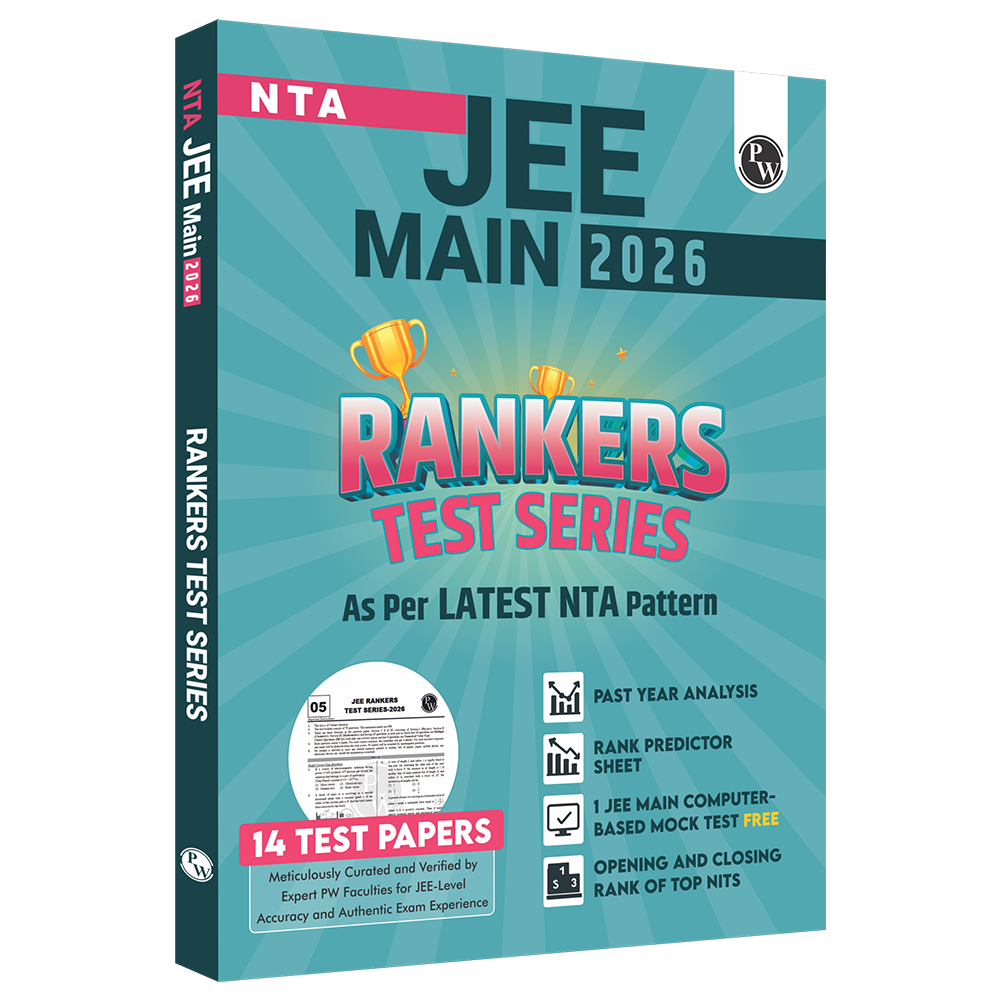JEE Main Test Series: A Game-Changer for Your Preparation

JEE Main Test Series: The JEE exam is one of the most competitive entrance tests in India, opening doors to top engineering institutions like IITs, NITs, and other prestigious colleges. For students appearing in the JEE exam 2026, the first session is scheduled to take place from January 2026, and the second session will follow later in the year. With the exam dates approaching, it is essential for aspirants to focus on a structured and strategic preparation plan to maximise their scores.
A well-designed JEE Main test series can be a game-changer in this preparation journey. By providing students with exam-like practice, these test series help familiarise them with the question pattern, marking scheme, and time constraints. Platforms like the Physics Wallah test series offer a wide range of tests, including chapter-wise, topic-specific, and full-length mock tests, which enable students to identify their strong and weak areas effectively.
For those aiming to secure top ranks and admission into IITs, an IIT JEE test series plays an even more significant role. These series are especially made to provide real exam conditions and build the confidence needed to tackle challenging problems under pressure. Moreover, regular practice with a JEE test series helps in reducing errors, enhancing accuracy, and improving overall speed – critical factors for success in the JEE Main and Advanced exams.
Check Out: PW JEE Exam Books
JEE Main 2026
The JEE Main 2026 exam duration is 3 hours for most candidates, while PwD candidates are given 4 hours. The total marks for the exam differ depending on the paper. For Paper 1 (BE/BTech), the total marks are 300, whereas both Paper 2A (BArch) and Paper 2B (BPlan) carry 400 marks each. The marking scheme awards +4 marks for each correct response and deducts 1 mark for every incorrect answer.
The number of questions also depends on the chosen paper. Paper 1 includes 75 questions, Paper 2A has 77 questions, and Paper 2B consists of 100 questions. The exam is available in 13 languages, including English, Hindi, Assamese, Bengali, Gujarati, Kannada, Marathi, Malayalam, Odia, Punjabi, Tamil, Telugu, and Urdu, making it accessible to students across India.
The JEE Main 2026 score will be accepted by all NITs, IIITs, and CFTIs, ensuring students have a chance to secure a seat in some of the country’s most prestigious institutions.
Check out: JEE Main 6 Years Previous Years Solved Papers
JEE Main Test Series: A Game-Changer for Your Preparation
One of the most important resources for JEE Main preparation is the basic study material, but once you've completed those, it’s crucial to turn to other resources, such as the JEE Main Test Series. These test series play an important role in helping you practice and apply the concepts you’ve learned.
The JEE Test Series offers a wide range of practice questions, closely aligned with the latest JEE Main exam pattern, ensuring you're well-prepared for the actual exam. The IIT JEE Test Series typically includes 11 full-syllabus test papers and 4 part-syllabus papers, giving you enough opportunities to practice and strengthen your knowledge. It also covers the JEE Main total marks, helping you understand the structure and marking scheme of the exam.
In addition to regular test papers, you can benefit from JEE Main mock tests, which simulate real exam conditions and boost your time management skills. Detailed solutions for each test will help you improve your problem-solving abilities. Whether you're using the Physics Wallah Test Series or another well-structured series, these tests are an essential resource in your preparation for JEE Main 2026.
Prepare JEE Main 2026 with JEE Main Test Series
-
Start with Basic Books: Begin your preparation with NCERT books. These books cover all the essential topics from classes 11 and 12 that form the base of JEE Main. Focus on understanding the concepts thoroughly before moving to advanced topics.
-
Create Detailed Notes: As you study, make notes of important formulas, definitions, and concepts. This will help you quickly revise key topics without having to go through the entire textbook again. Keep your notes concise and organised for easy reference.
-
Incorporate JEE Test Series: Once you feel comfortable with the basics, start using a JEE Main Test Series. These series will help you practice questions that mirror the actual exam, giving you an idea of the exam’s difficulty level and the types of questions that could appear.
-
Full-Syllabus Tests: Look for test series that offer full-syllabus tests. These tests cover all three subjects—Physics, Chemistry, and Mathematics—and help you simulate the actual exam. Taking full-length tests will build your stamina for the 3-hour exam duration.
-
Topic-Wise Tests: Apart from full-syllabus tests, also practice topic-wise tests. These allow you to focus on one subject or chapter at a time, ensuring that you’re confident in all topics, especially the ones you find difficult.
-
Time Management with Mock Tests: Mock tests are a great way to practice managing your time during the exam. Since JEE Main is a time-bound exam, regular practice with mock tests will help you become faster in answering questions without compromising accuracy.
-
Understand JEE Main Marks and Percentile: Learn about the JEE Main total marks and how they relate to your percentile. Knowing how your score translates into a percentile will help you set goals and understand where you stand compared to other candidates.
-
IIT JEE Test Series for High-Level Questions: The IIT JEE Test Series usually includes questions of varying difficulty levels. These tests challenge your problem-solving skills and help you prepare for tougher questions that may appear in the actual exam.
-
Feedback for Improvement: After taking each test, carefully review your answers and mistakes. The JEE Test Series often provides detailed solutions, helping you understand where you went wrong. This feedback is crucial for improving your skills and avoiding similar mistakes in future tests.
-
Physics Wallah Test Series: The Physics Wallah Test Series is popular for its well-structured approach and quality questions. It’s designed to closely resemble the real exam, helping you become familiar with the format and difficulty level of the JEE Main exam. Regular practice with this series will boost your confidence and improve your problem-solving abilities.
Also check, JEE Question Banks
JEE Main Marks vs Percentile
In JEE Main, it’s important to understand how marks and percentiles work together. Marks are the total points you score based on the correct answers in the exam, while a percentile shows how well you performed compared to others.
For example, if your percentile is 90, it means you scored better than 90% of the students who appeared for the exam. Since many students take the exam, the percentile system helps compare everyone fairly, even if the exam sessions are a bit different in difficulty. So, knowing how your marks affect your percentile helps you set realistic goals and track your progress.
-
300 – 250 Marks: 99 to 100 percentile. This is an excellent score and can help you get into the top IITs or NITs.
-
240 – 200 Marks: 99 to 99.7 percentile. This score range is great for top NITs, IIITs, and other good colleges.
-
180 – 150 Marks: 98.9 to 96 percentile. This is still a good range and can get you into many good engineering colleges.
-
130 – 100 Marks: 95.9 to 90 percentile. You’ll have a good chance to get into some of the top government colleges.
-
90 – 60 Marks: 89.9 to 80 percentile. This range is still okay for getting into government colleges but might not get you into top IITs or NITs.
-
60 – 30 Marks: 79.9 to 50 percentile. You might still get into some colleges, but improving your score can help you get into better ones.
-
Below 30 Marks: Below 50 percentile. With this score, getting into top colleges is harder, but you can still try other options.
Read More: JEE Main Marks vs Percentile
JEE Main Test Series FAQs
1. What is the JEE Main exam?
JEE Main is a national-level entrance exam for admission to undergraduate engineering programs in India. It is the first step to qualify for JEE Advanced, which is needed for admission to the Indian Institutes of Technology (IITs).
2. When will JEE Main 2026 be conducted?
JEE Main 2026 Session 1 will be held from January 2026. The second session will take place in April 2026. Dates for the second session will be announced later.
3. What is the JEE Main test series?
A JEE Main test series consists of a set of practice tests that mimic the actual JEE exam. These tests help students improve their exam-taking skills, understand the pattern of questions, and get used to the time constraints. The Physics Wallah Test Series and other similar test series are available for practice.
4. What is the difference between JEE Main marks and percentile?
Marks refer to the total score a candidate gets based on correct answers. Percentile is a relative measure that shows how a candidate’s performance compares to others. For example, a percentile of 90 means you performed better than 90% of all candidates.
5. What is the syllabus for JEE Main 2026?
The JEE Main syllabus covers topics from Physics, Chemistry, and Mathematics as per the NCERT curriculum for classes 11 and 12.










